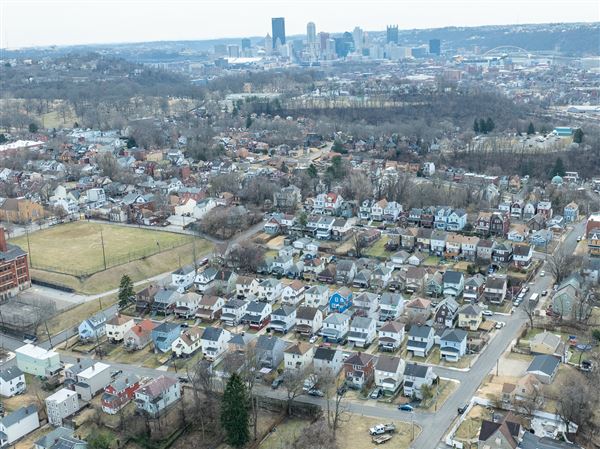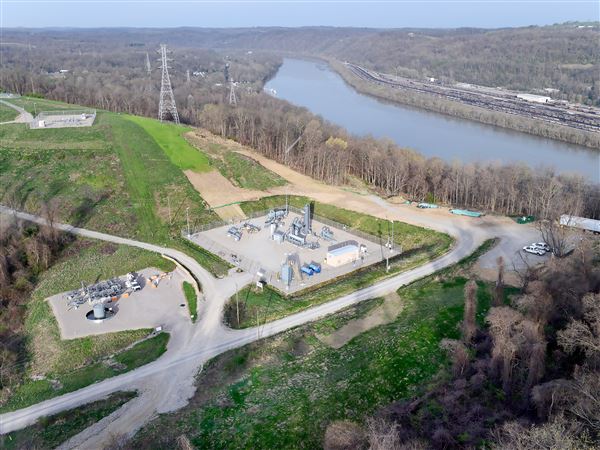Climate change is a critical issue not only for our environment, but also for our national security. Even the Trump administration has reaffirmed why it is so vital that we act on climate for the safety of our country and our future.
In November, the administration released the Fourth National Climate Assessment, a report developed by private and federal experts, including members of the Defense and State departments.
This report found that climate change “can exacerbate conflict” by decreasing supplies of food and water. Also, extreme weather events such as floods, hurricanes and droughts displace populations and increase migration.
The report found that climate change is already damaging U.S. military infrastructure such as roads and runways, forcing the military to adapt.
The threat includes hot summers that can increase levels of ozone (smog) in cities such as Pittsburgh and already has affected crop yields and recreational activities in Pennsylvania.
Thankfully, Gov. Tom Wolf agrees. On Jan. 8 in Pittsburgh, he said of climate change, “The threat that we’re confronting is not an abstract problem. 2018 was the wettest year on record with flooding. That’s affected our farms. It’s devastated homes. This is affecting all of our lives each and every day.”
The governor’s assessment was followed by the signing of an executive order calling for a 26 percent reduction from 2005 levels of greenhouse-gas emissions in the state by 2025 and 80 percent by 2050. This supports Pittsburgh’s Climate Action Plan and is in keeping with the 2025 target the U.S. agreed to as part of the Paris climate accord. The locally based utility Peoples Gas simultaneously announced a commitment to cut methane emissions from its distribution system by 50 percent.
Last summer, Mr. Wolf finalized limits on methane- and ozone-related air pollution from new and modified natural-gas infrastructure. Now, he has proposed standards that would cut methane- and ozone-related pollution from existing natural-gas infrastructure. The administration also should reduce limits over time on carbon emissions from the power sector.
Methane is an especially potent greenhouse gas, 80 times more damaging than carbon in the first 20 years after its release into the atmosphere. It is responsible for roughly 25 percent of the global-warming effects we experience today, and the oil and gas industry is the largest industrial source of methane pollution. Methane is the main component of natural gas, so the more methane that leaks into the atmosphere, the more it contributes to global warming and wastes energy.
A 2018 Environmental Defense Fund report found that more than 520,000 tons of methane is wasted each year. That is about $68 million worth of natural gas — enough to heat every home in Pittsburgh and then some.
As the second-largest natural-gas-producing state in the nation, Pennsylvania is at the front lines of both an energy renaissance and a climate crisis that are simultaneously helping and hurting the state’s 13 million residents. It is doing much to limit the damage caused by climate change but needs to do more.
It is galling to veterans that we are sending our soldiers to fight, and sometimes die, to protect our energy-security overseas while we waste energy resources here at home.
Make no mistake, wasting methane makes the United States and our allies more reliant on energy from hostile countries and robs local communities of taxpayer revenue and economic development. This is unacceptable.
The action needed is clear. Mr. Wolf should continue to stand up to federal attacks on our air and energy-security by adopting commonsense methane rules that prevent the waste of valuable resources from existing natural-gas operations and tougher limits on the power sector’s carbon emissions. These tangible, concrete actions would strengthen our economy, improve our energy security and protect our communities.
Garett Reppenhagen, a former Army sniper, is organizing director for Vet Voice Foundation. Sarah Chillson is a Pittsburgh area activist who supports the work of the foundation.
First Published: February 5, 2019, 5:00 a.m.















